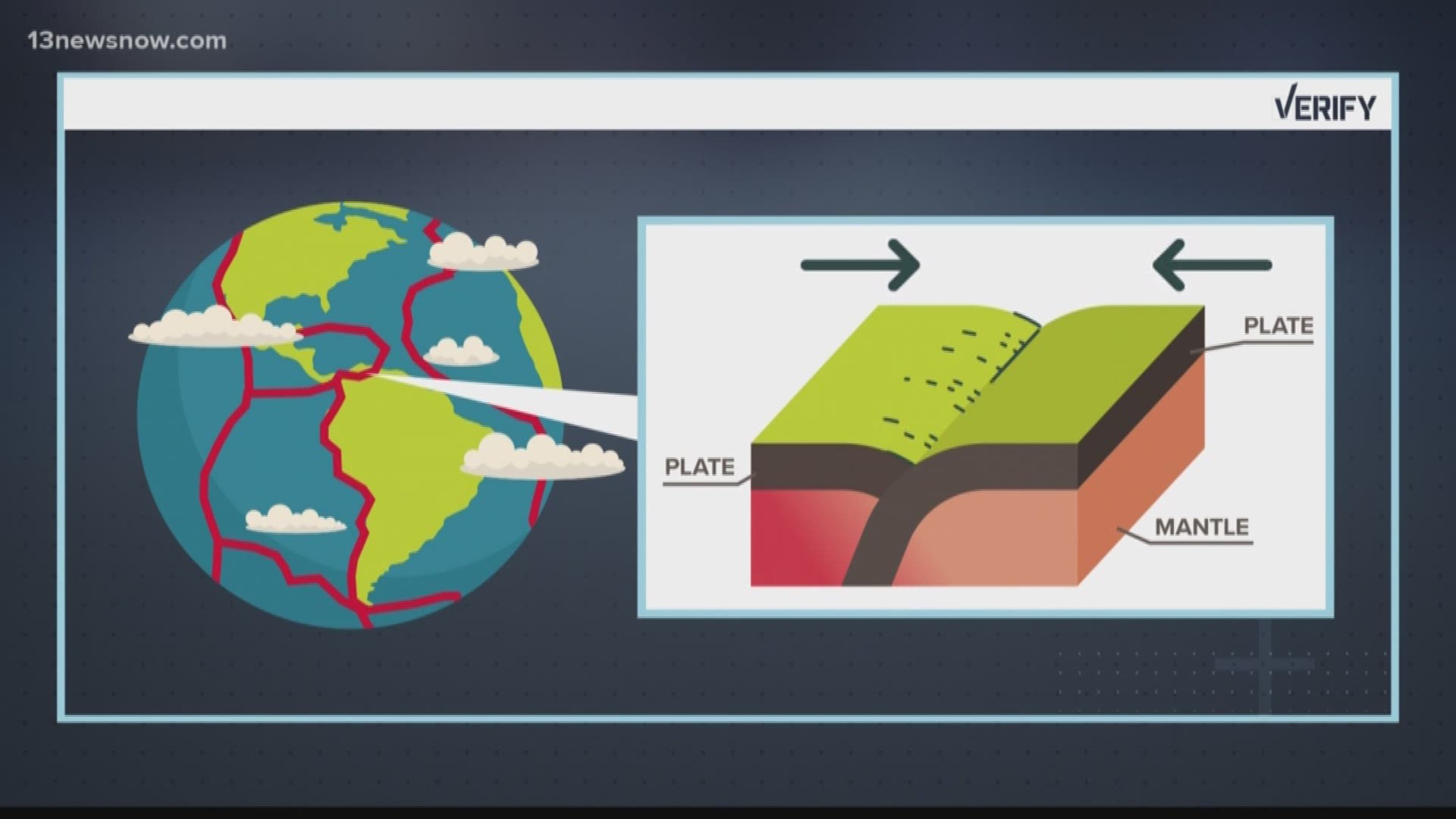NORFOLK, Va., (WVEC) -- Worldwide in 2017 there were nearly 1,600 earthquakes. That averages out to about 4 earthquakes per day.
Not only are they one of the costliest natural disasters, but they also strike without any warning.
But new technology, software and even phone apps claim to be able to predict earthquakes. Is that possible?
First, let's understand what causes an earthquake.
The Earth's crust comprises massive tectonic plates that sit over the mantle, basically a pool of molten lava.
These plates shift and collide with one another, almost daily. When this impact occurs, earthquakes are felt at the surface in locations on or near a fault line, or where two plates meet.
To verify if scientists can predict when this will happen, I turned to Michael Blanpied with the United States Geological Survey.
"What we would love to do is to predict when and where and how big an earthquake is going to be with enough time whether that be minutes or months in order to be able to do something about it," Blanpied said.
"The scientific community, the seismological community has been trying to achieve that for decades and at this point we are no farther along towards doing that."
We can verify the claim that an earthquake can be predicted is false.
The thought process of earthquake prediction may seem simple, I mean, we predict the weather, so why not earthquakes?
But with weather we can see the complete picture, as we know the state of the atmosphere, the effects of winds and sunlight on global patterns, etc. With earthquakes, there is no way to get down into the layers of the Earth and observe what is going on.
What we can do is detect an earthquake as it's happening and give early warning to surrounding areas. How do we do this? Through a vast network of seismometers all over of the world, satellites that can detect the slightest ground movement.
According to this, Blanpied said "that gives time to send warnings ahead before that strong shaking reaches centers of population. So we call that earthquake early warning."
This is a system that is already in use in places like Japan and Mexico City and will be built for the West Coast in the U.S. — that's if it gets completely funded.

